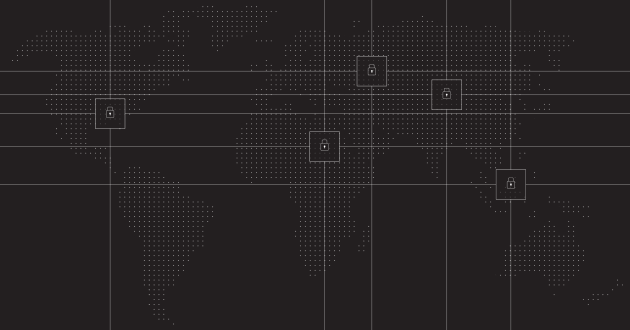Since going into effect on June 21, 2022, the Uyghur Forced Labor Prevention Act (UFLPA) has developed an international reputation for being among the most assertive regulations addressing human rights abuses in China’s Xinjiang Uyghur Autonomous Region (XUAR).
The law, enforced by U.S. Customs and Border Protection (CBP), bars all shipments with a nexus to Xinjiang from entering the country and requires importers to provide “clear and convincing evidence” that their goods are free of forced labor.
Although it did a lot to reprioritize forced labor as a top-tier compliance challenge, the UFLPA is by no means the only forced labor ban multinational corporations must contend with. There are at least five sister forced labor bans — some long established, others in development — compliance teams will want to monitor and incorporate into their risk mitigation strategies:
- The Australia Modern Slavery Act
- The Canada Modern Slavery Act
- The EU Forced Labor Ban
- The Germany Supply Chain Due Diligence Act
- The UK Modern Slavery Act
Three Types of Forced Labor Regulations
These forced labor regulations generally fall into one of three categories: disclosure-based, diligence-based, and border control-based.
- Disclosure-based laws simply require importers to report on their exposures to forced labor and efforts to mitigate that exposure.
- Diligence-based laws, on the other hand, mandate that corporations have forced labor risk management systems in place that meet certain standards.
- Border control-based laws like the UFLPA, finally, prohibit the importation of goods made with forced labor by detaining shipments at the border.
>> Watch the webinar: mitigating forced labor risk in global supply chains using public data <<
Established and Emerging Global Forced Labor Laws
Here are five other forced labor laws multinational companies should know:
1. The Australia Modern Slavery Act
The Australia Modern Slavery Act, formally known as Modern Slavery Act 2018, is a disclosure-based statute that predates the UFLPA.
Enacted January 1, 2019, the law requires business entities to report on their potential exposure to forced labor, also known as modern slavery, as well as steps they’ve taken to assess and address those risks.
Although the Australia Modern Slavery Act currently applies to all entities carrying on business in Australia and generating a consolidated worldwide revenue of more than $100 million Australian dollars, that threshold may be reduced to $50 million as part of a set of proposed changes. Authorities may also introduce a due diligence obligation, along with civil penalties for non-compliance.
2. The Canada Modern Slavery Act
The Canada Modern Slavery Act, like its Australian counterpart, is a disclosure-based regulation but is not slated to go into effect until January 1, 2024. Initial reports are due to Parliament by May 31, 2024; but industry leaders have been calling for a one-year delay due to a “lack of procedural and reporting guidelines” from authorities.
Unlike some of its sister regulations, the Canada Modern Slavery Act also explicitly targets child labor, requiring covered entities to report on their efforts to prevent and reduce the risk of forced labor and child labor in their production and imports. Not only that, but these disclosure reports must be made public and published prominently on companies’ websites.
Entities covered under the Act include those listed on a stock exchange in Canada or otherwise prescribed by regulations. It also includes entities that have a place of business in Canada, do business in Canada, or have assets in Canada and, based on their consolidated financial statements, meet at least two of the following conditions for at least one of their two most recent financial years:
- They have at least $20 million in assets
- They have generated at least $40 million in revenue
- They employ an average of at least 250 employees
Entities found guilty of non-compliance may be fined up to CA$250,000.
3. The EU Forced Labor Ban
The EU Forced Labor Ban, proposed in September 2022, is a border control-based statute still in development that would prohibit products made using forced labor, including child labor, from being placed or made available in the EU market. It would also prohibit those products from being exported from the EU and hold EU Member States responsible for enforcing the ban.
Like the UFLPA, the EU Forced Labor Ban would apply to products of any type, including their components, regardless of the sector or industry. Unlike the UFLPA, however, it includes in its scope goods linked to environmental abuse.
4. The Germany Supply Chain Due Diligence Act
As the name implies, the Germany Supply Chain Due Diligence Act is a diligence-based regulation that, like the EU Forced Labor Ban, prioritizes both environmental and human rights.
The Act, passed in July 2021 and deployed in two phases, requires entities to establish and implement effective risk management systems aimed at identifying, preventing, and remediating environmental and human rights risks, which include child labor and forced labor.
Phase 1 of the Germany Supply Chain Due Diligence Act went into effect on January 1, 2023 and applies the law to enterprises that have their central administration, principal place of business, administrative headquarters, or statutory seat in Germany and have at least 3,000 employees in Germany. Phase 2 broadens this scope to include entities with at least 1,000 employees.
One of this regulation’s defining characteristics is its steep penalties for noncompliance. Flat fines range from €100,000 to €2 million with others scaling in proportion to the violating enterprise’s annual turnover.
>> Learn how global HR solution Remote enhanced its due diligence with Sayari <<
5. The UK Modern Slavery Act
The UK Modern Slavery Act predates the others in this list and was passed in October 2015. Although more directly focused on the UK’s policy and enforcement around slavery and human trafficking broadly, it does also impose a disclosure-based mandate on corporate entities in “Part 6: Transparency in Supply Chains Etc.”
The UK Modern Slavery Act applies to body corporates (wherever incorporated) and partnerships (wherever formed) which carry on a business, or part of a business, in any part of the United Kingdom. Covered entities must submit slavery and human trafficking statements outlining steps they have taken to ensure that slavery and human trafficking is not taking place in their supply chains or businesses. Failure to comply can carry a prison sentence and fines.
For an inside look at how compliance professionals are balancing these global mandates, register for our webinar on complying with global forced labor regulations.



